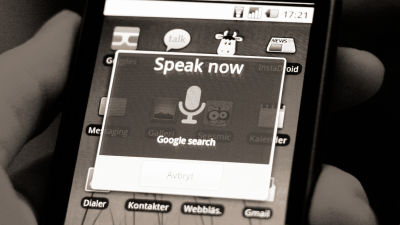Google assistants are listening to conversations collected by the Google Assistant

The Google Assistant,
Google employees are eavesdropping, even in Flemish living rooms, VRT NWS has discovered | Flanders News
https://www.vrt.be/vrtnws/en/2019/07/10/google-employees-are-eavesdropping-even-in-flemish-living-rooms/
In April 2019, Amazon's speech recognition assistant Amazon Alexa recorded conversations, and it turned out that employees were analyzing speech data, which made it a big topic. According to the Belgian broadcaster VRT , Google is doing the same thing.
In VRT, contact with people working as a Google subcontractor after an Amazon case. I got evidence that about 12 people work in Holland and Flanders to analyze voice data collected in the Netherlands.

by
The voice data that Google is collecting is what people talked to the Google Assistant, such as via Google Home. During the interview, VRT heard over 1000 voices, including content related to private conversations and personal information.
Address and other information that appeared in voice data is ready to reach a specific person when combined, and VRT actually interviews the parties. A man in Flemish listened to the voice data obtained from VRT and testified that 'this is definitely my voice', and a couple living in Waras Munster testified that he could hear the voice of a child or grandchild .
The reason Google collects and analyzes voice data collected from users is to help Google assistants understand subtle pronunciation in Dutch. Since self-learning algorithms and Google's tools are often difficult to recognize voice commands, analysis requires human hands. The subcontractors seem to double check the voice script automatically generated by Google for any mistakes. According to VRT, the voices collected by Google Home are very clear, and those recorded by the smartphone app version of Google Assistant seem to be phone quality.
Although the voice data and the user information itself are separated, if the voice content itself contains information that leads to personal information, it is possible to identify an individual just as VRT identifies the speaker of the voice data. is. In addition, it is necessary to know the spelling of the word to check the script, but proper nouns such as company name, name and place name are difficult to understand spelling, and as a result of checking spelling with Google search and Facebook, the owner of voice data It is likely to find a person who seems to be.

by
Of the more than 1000 voices heard by VRT, 153 said that the command 'OK, Google' was not clearly uttered and should not have been recorded in the first place. However, VRT points out that Google Home may have started recording as a result of someone near you saying a word that sounds like 'OK, Google' by accident.
Voices recorded by chance may include private conversations in the bedroom or conversations with highly confidential information by experts, which may indicate privacy issues. Also, subcontractors who became sources of information for VRT sometimes hear the voices of people searching Google Home for many medical problems related to personal privacy, the voice of men searching for pornography, etc. Testified that Although VRT admits that such audio recordings are written in the Terms of Service, they are aware that 'the conversation is recorded and stored in Google' because there is no opportunity for this clause to become a topic clearly It is pointed out that there are few people.
Google said in response to VRT's inquiries about voice data use that it is working with voice experts around the world to improve voice technology, and a Google spokesman in Belgium 'It is very important for the development of technology that supports such products,' said. He also stated that the voice data to be analyzed is only about 0.2% of the whole, and that it is not linked to any personal information or information that can identify an individual.

by Aaron Yoo
Related Posts:
in Software, Posted by log1h_ik







